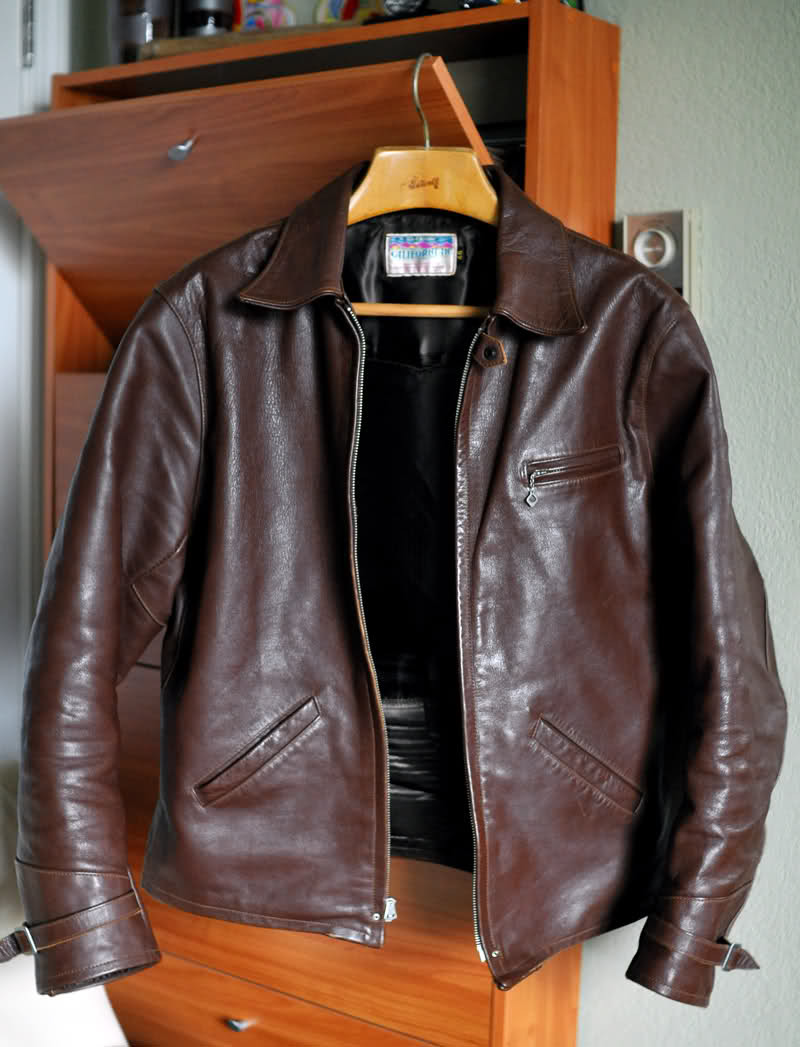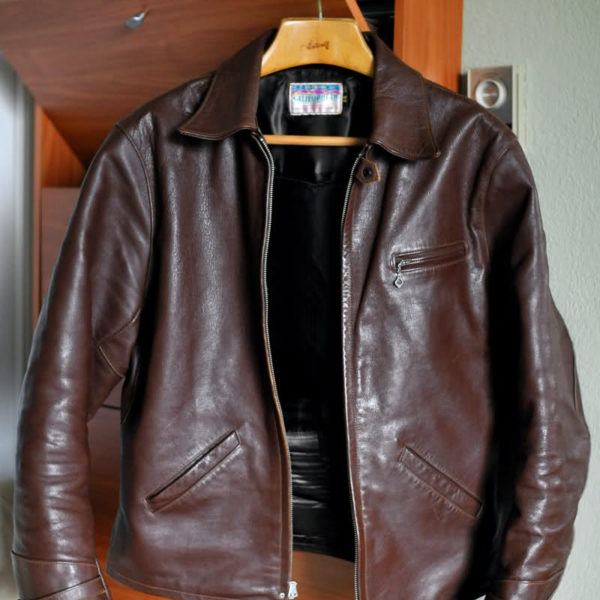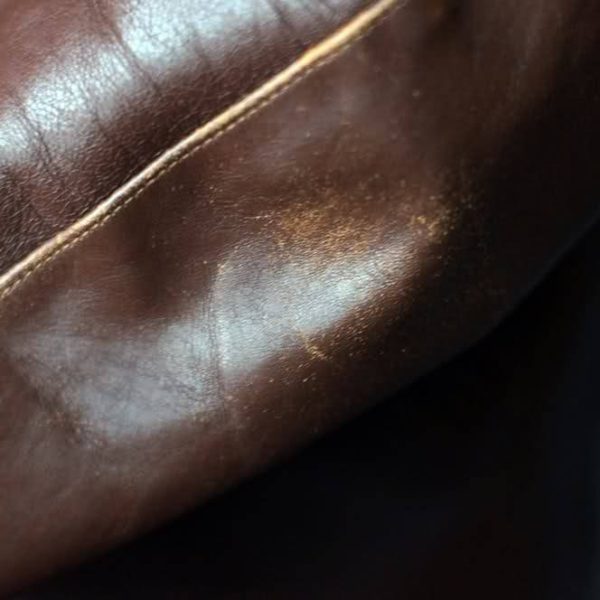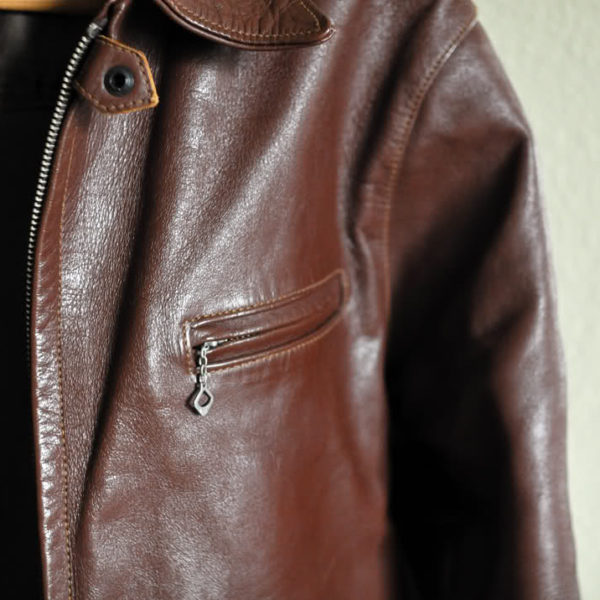
In the past year or so, I’ve come to appreciate the value of good hangers. Suit jackets and sport coats have complex constructions, and improper hangers can warp and shift some of the material that goes into the shoulders (thus ruining not only your jacket’s silhouette, but also how it fits). I say that not because our advertiser The Hanger Project sells fancy hangers, but because a well-respected English tailor confirmed this for me two years ago, and Jeffery at Tutto Fatto a Mano said the same thing (Jeffery’s a tailor, a professional pattern maker for a large suit manufacturer, and one of the more fair-minded guys I know when it comes to clothing).
How you store leather jackets is just as important. As I’ve mentioned, most leather jackets are made from lambskin, goatskin, horsehide, or cowhide. Generally speaking, the first two will be lighter in weight than the second two. Of course, you can thin any leather down to whatever thickness you wish, so it’s possible to have a lightweight horsehide jacket, but it’s rare. Most cowhide and horsehide jackets are quite heavy.
If you have such a jacket, storing it on a thin hanger can also ruin the shoulders. The weight of the leather will pull the garment down, and over the course of years, can stretch out and crack the shoulder line. Thus, some leather jacket enthusiasts recommend using hangers with wide moulded shoulders. I really like The Hanger Project’s, again not because they’re our advertiser, but simply because their hangers are nicely made and come in a width that perfectly fits my jackets. In fact, I’m buying a dozen more from them next month. The only downside is that they’re expensive and a bit wide at 2.5". The extra width gives more support, but it also takes up more room in your closet. You can get slightly more affordable hangers through Wooden Hangers USA, and slightly thinner hangers at Butler Luxury.
Better yet, the other solution is to not hang your jacket up at all. If you have the room, you can lay your jacket down and just store it somewhere. This will ensure that nothing will get stretched out.
For vintage shoppers, it’s good to pay attention to the shoulders when buying heavy leather jackets. Some of these have been sitting on the racks for years, jam-packed into tight spaces. If the shoulder is damaged and cracked, it can be difficult to repair, and thus might be wise to pass on.


